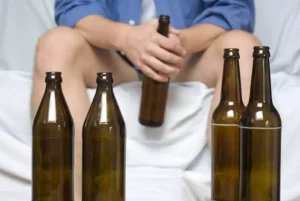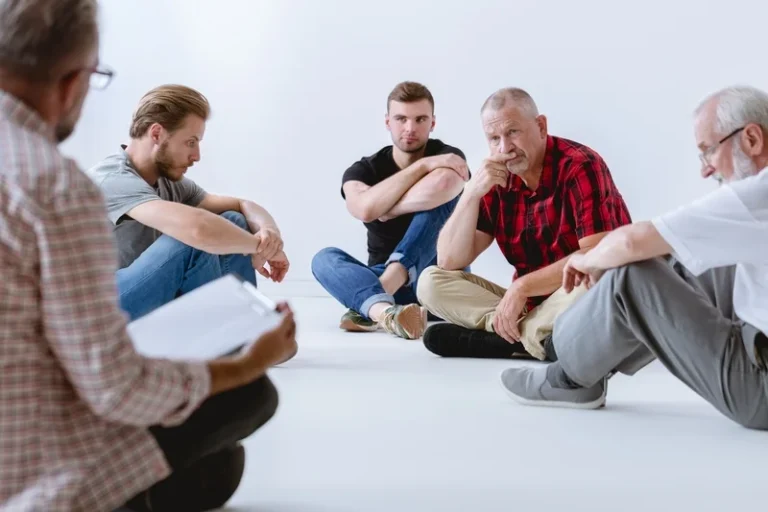
One of the best ways is simply to limit the amount of drinks you have. There are several drink counting apps to help you keep track of how much alcohol you’ve had. While there can be peer pressure to drink from your coworkers, it’s important to remember that drinking is not required. Opting to have some sparkling water or a soda can be viable alternatives.
Alcohol Dependence and Addiction from After-Work Drinking
We have inpatient and outpatient facilities nearby and across the country ready to help. The research also found that 15% of employees would have no qualms about getting drunk in front of their boss. On the other hand, 11% of bosses say they would get drunk in front of their employees. Naltrexone can also reduce alcohol-related thoughts and cravings — or, as one Oar member puts it, “the insanity of thinking about alcohol subsided” (3).
After-Work Drinks: Things Employers Should Consider
These are great ways to build bonds amphetamine addiction treatment and connections while remaining sober. Some may even resort to drinking after work to avoid or numb their stresses back at home. As with all cases of life’s stresses, it’s important to manage them in a healthy way instead of resorting to drinking immediately. Is after-work drinking feeling like a necessity at the end of a long, hectic day? If you’re going to the bar after every shift or binge drinking when you get home from the office, it may be time to seek help.
Why Employees Quit (and 7 Steps to Retain Them)

It is, therefore, crucial to recognize the fine line between social drinking and its potential to harm relationships. Employers and employees must foster a work culture that promotes healthy habits and supports individuals who choose not to drink after work. After-work drinking, while often seen as a way to decompress and foster camaraderie among colleagues, can have far-reaching social and professional consequences. Given the potential for severe health outcomes, including liver failure and hepatocellular carcinoma, reducing excessive alcohol intake is critical. The recent COVID-19 pandemic saw a rise in alcohol consumption, which is projected to result in thousands of additional deaths from liver disease in forthcoming years, as reported by Harvard Gazette.
- This decision illustrates the pitfalls of managing conduct at after work drinks both for workers and employers, and provides some clear guidance on what to do, and what not to do, if you find yourself in such a situation.
- When you call our team, you will speak to a Recovery Advocate who will answer any questions and perform a pre-assessment to determine your eligibility for treatment.
- A survey conducted on after-work drinks showed that one in five workers who attend happy hours find it beneficial for networking and improving their position in the company, and eight in ten attend to bond with colleagues.
- Seeking professional help is advisable when self-management strategies are insufficient.
Drink Less Or Quit Alcohol Entirely

Carol Warner has been writing about the latest trends in human resources, employment law, education law, safety and security, employee training, and emergency response plans for more than 15 years. She attended East Carolina University and earned a Bachelor’s degree from New York Institute of Technology. Outside of work, she spends free time listening to audiobooks and solving crossword puzzles. If your boss suspects you might be drunk or high at work, they can ask you about your alcohol and drug use or have you take a drug test. When it’s apparent that you work under the influence, your job could be on the line. They may notice that you take a lot of sick leave or that you’re often late to work.
Drinking after work has also become a common culture for work-related activities. Many companies have found that it is a way to celebrate recent accomplishments from the company or it can bring people together to network and brainstorm. Despite being in a work-related setting there is the risk of overconsumption. This can have serious repercussions for both the individual and their company.
These after-work gatherings often serve as a platform for employees to get to know each other on a more personal level. Stories are shared, laughter fills the air, and relationships are strengthened. It is not uncommon for colleagues to discover shared interests or hobbies during these casual get-togethers, leading to the formation of stronger connections both inside and outside of the workplace. After-work drinks not only serve as a means of relaxation but also as a way to foster relationships and strengthen team dynamics. It is during these informal gatherings that coworkers can let their guard down and engage drinking after work in conversations that go beyond work-related topics.
- Know that it’s a profitable decision, as it caters to the steady demand of those who choose to indulge at the end of the day.
- Dumping all of those negative thoughts, worries and internal battles will free you in a way you never thought possible.
- After a long day at the office, many professionals turn to after-work drinks as a way to unwind and socialize with colleagues.
- Ms Puszka lodged an unfair dismissal claim seeking reinstatement to the role she was dismissed from.
- Social support is also crucial, as isolation can exacerbate the risk of relapse.
- Persistent after-work drinking can disrupt the neurotransmitter balance within the brain, affecting mood and behavior.
Tips to Avoid Drinking After Work?
- Overindulgence can lead to inappropriate behavior and impaired judgment, tarnishing your professional reputation.
- It is essential to recognize that while moderate alcohol consumption may carry some cardiovascular benefits, the line between moderate and excessive is thin, and crossing it can lead to serious health consequences.
- The exact mechanisms behind this association are still being studied, but it is believed that alcohol damages DNA, impairs the body’s ability to repair damaged cells, and increases the production of harmful chemicals in the body.
- What starts as a harmless way to unwind can quickly spiral into a habit that masks underlying issues and prevents individuals from addressing their stressors in a healthy and proactive manner.
- When we recognise and understand why we are drinking, it can help us realise that there are alternative, healthier ways to relax.
- The social aspect of this practice is underscored by its role in team bonding, with one in three workers believing it beneficial for strengthening team dynamics.
Recognizing and admitting that post-work drinking might be a problem is a brave first step. Seeking professional help is often the most effective way to address these challenges. Grace Counseling provides a supportive and non-judgmental space to explore your relationship with alcohol.


Research indicates that even moderate drinking can lead to an irregular heartbeat and heightened blood pressure, both of which are risk factors for more severe cardiovascular diseases. Long-term effects of regular after-work drinking may include the development of hypertension, cardiomyopathy, and coronary artery disease. These conditions can lead to heart attacks and strokes, which are life-threatening events with long-term health implications.

